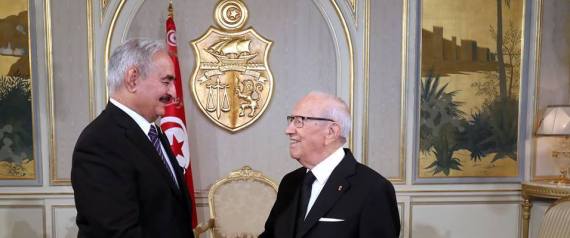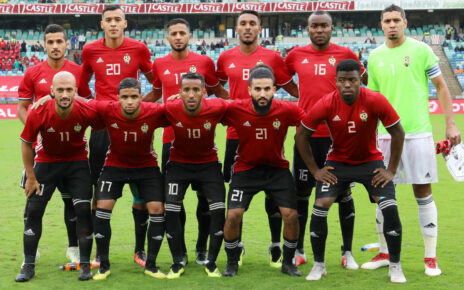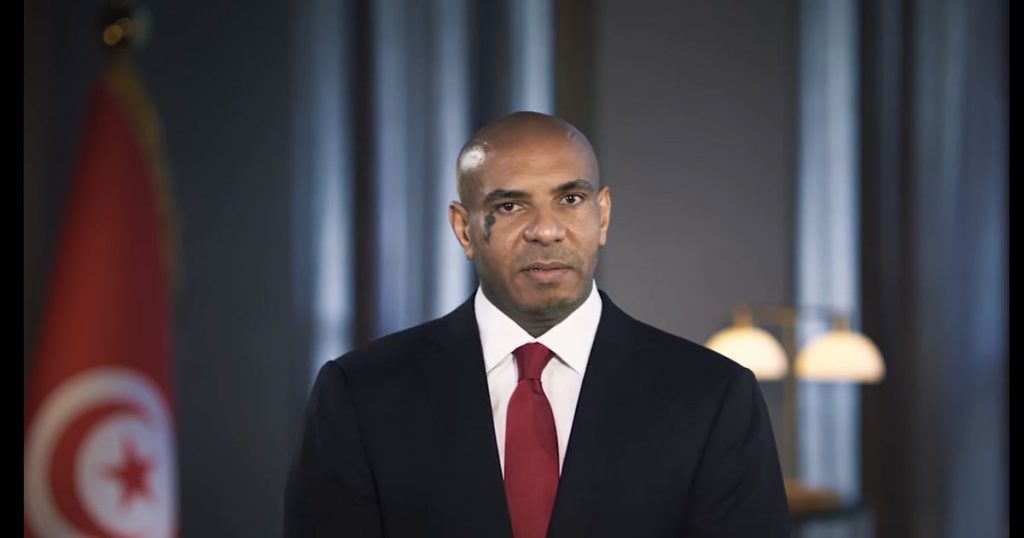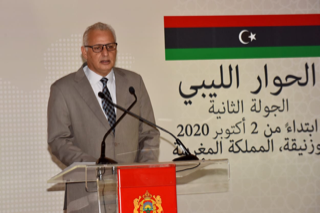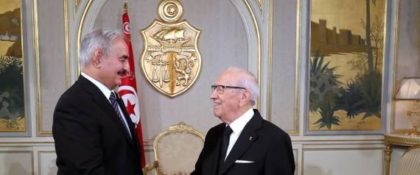 Head of the self-imposed Libyan National Army (LNA) Khalifa Haftar Monday in Tunis indicated that terrorism in the North African country will be soon eradicated adding that his LNA is a powerful army.
Head of the self-imposed Libyan National Army (LNA) Khalifa Haftar Monday in Tunis indicated that terrorism in the North African country will be soon eradicated adding that his LNA is a powerful army.
“But we have a powerful army, and very soon we will get rid of the story of terrorism in Libya,” he said after meeting President Caid Essebsi.
Haftar’s visit to Tunis came following an African Union-sponsored meeting in Congo Brazzaville last week to mediate the Libyan crisis.
Libya descended into a deep crisis since 2011 following the fall and death of Muammar Gaddafi who ruled the oil-rich country for several decades.
The Islamic State group (IS), taking advantage of rivalries between Libyan factions vying for power, entered the country in 2014. Despite losing its Sirte stronghold in December, the group is still active and last August it dealt a heavy blow to Haftar forces by killing nine LNA militaries and at least two civilians.
They were summarily slaughtered and some were decapitated in the attack that took place in the town of Al Joufra, located in the southeast of the country.
After it was expelled from Syrte, Benghazi and other cities on the Libyan coast, the terrorist group redeployed to the south of the country, where the presence of the military is less heavy.
In July, Haftar announced victory over extremist fighters in Benghazi after three years of fierce battles.
The Head of LNA, backed by Egypt, United Arab Emirates (UAE) and Russia, has been opposed to UN-backed Presidency Council (PC) and its aligned Government of National Accord (GNA).
The rivalry between Haftar and PC led by Faiez Serraj has plagued the political settlement of the Libyan crisis and reconstruction of the country, prompting several countries to try to mediate between the two political rivals.
Last July, President Emmanuel Macron of France convened a meeting between the two men, who agreed to set aside their contentions and make way for peace, endorsing the Libyan Political Agreement (LPA) signed in Skhirat, Morocco, in December 2015, as the only political roadmap for the country’s reconstruction.
The two men convened that there could only be a political solution to the Libyan crisis, and pledged to work to put the Libyan Political Agreement approved at Skhirat into full operation.
Yet, on the ground, no concrete moves have been made so far.
